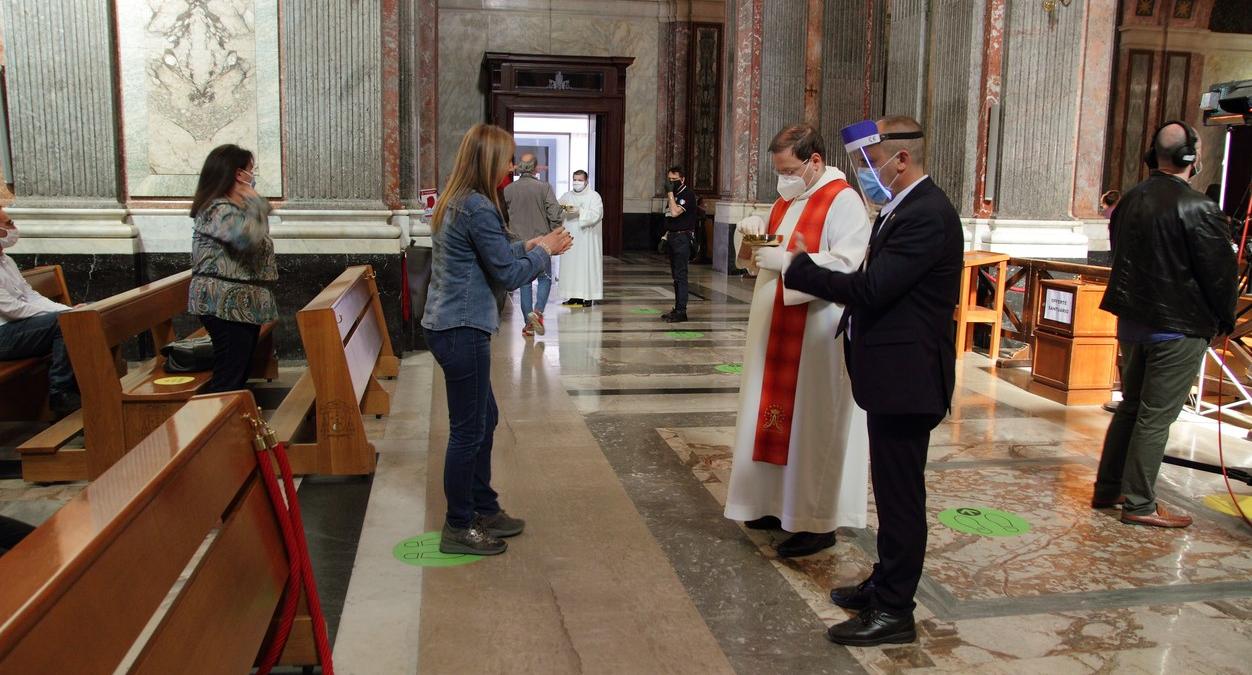A new study from researchers at the University of California-Los Angeles shows the US population's response to COVID-19 precautions stood in sharp contrast to other countries.
Worldwide, people who professed to have more traditional or socially conservative values were more likely to adhere to COVID-19 recommendations, but in the United States people with those values were more likely to dismiss such recommendations.
The study was published in Scientific Reports and conducted by anthropologists who surveyed nearly 8,000 people in 27 countries across North America, South America, Europe, Asia and Africa. Participants ranked their response to a number of statements about traditional values, then were also asked about how and if they took precautionary measures during the COVID-19 pandemic.
Statements regarding traditional values included "Respect for authority is something all children need to learn," and "Traditions are the foundation of a healthy society and should be respected." In 21 of 27 countries, participants with more traditional values reported taking more precautions during the pandemic, making the United States an outlier.
In the US, social conservatives were outliers
"Across a wide range of countries, people who endorsed traditional cultural values—a position that often underlies socially conservative political philosophies—were more likely to report taking strict COVID-19 precautions, despite the opposite pattern being observed in the U.S.," said study author Theodore Samore, a UCLA doctoral student in anthropology in a press release.
The authors of the study explained that those who value tradition are more likely to also practice threat avoidance, and were thus more eager to take COVID-19 precautions. The effect was seen in different regions worldwide, with the strongest effect seen in China, India, the Philippines, Chile, and Italy.
Both poor and rich countries displayed this link between traditionalism and threat avoidance, but the effect was most weakly correlated in the United States, Canada, Poland, Austria, and Indonesia.
In countries where the discourse around science and trust was less polarized, traditionalists were more willing to embrace precautions.
The authors suggest that in the United States, and to some effect Canada, those with traditional values perceived threats to the economy and personal liberty more strongly than the threat posed by COVID-19. Moreover, the US population in particular showed more distrust in scientists.
"In countries where the discourse around science and trust was less polarized, traditionalists were more willing to embrace precautions than their more socially liberal counterparts," study co-author Daniel Fessler, PhD said. "The U.S., where these topics were highly politicized, suffered more COVID-19 deaths per capita than any other highly developed nation."
Traditional values linked to internal precautions
The study authors divided COVID-19 precautions into two major categories: external precautions (mask wearing and social distancing) and internal (hand washing and disinfection). Traditional values were most strongly linked to taking internal precautions.
External precautions, namely mask wearing, was more likely to be government mandated in countries, and thus less a matter of personal choice. The authors also note that social distancing was more likely to clash among traditional people as it would interfere with traditional religious practices, such as going to church or temple.
In general, the authors said their findings show it is "crucial" to recognize and understand how traditional-minded people react to viral illness threats as "corrective action may prove vital as humanity confronts worldwide threats, from emerging pandemics to climate change, that can only be overcome through innovation and the adoption of new practices."






















